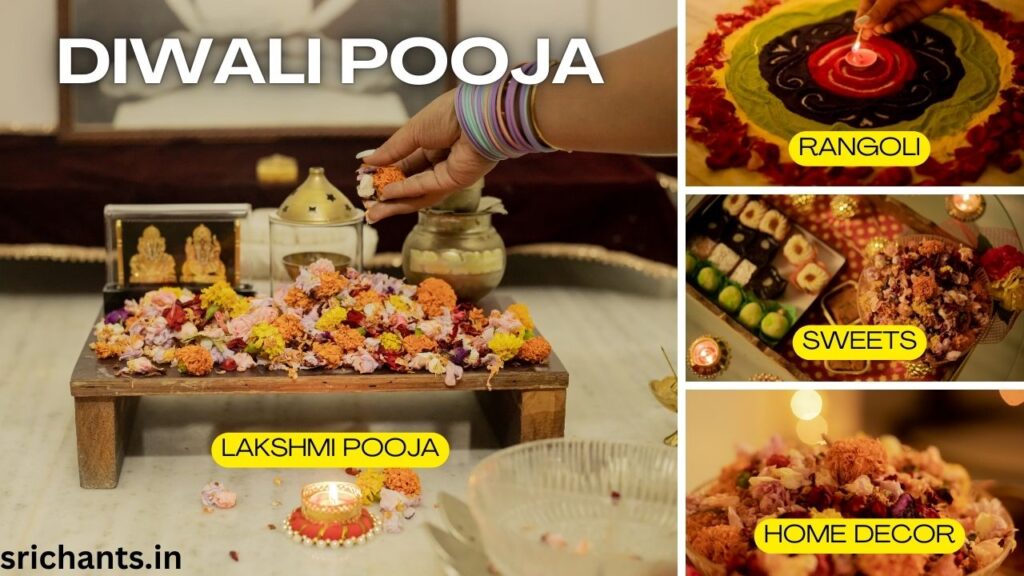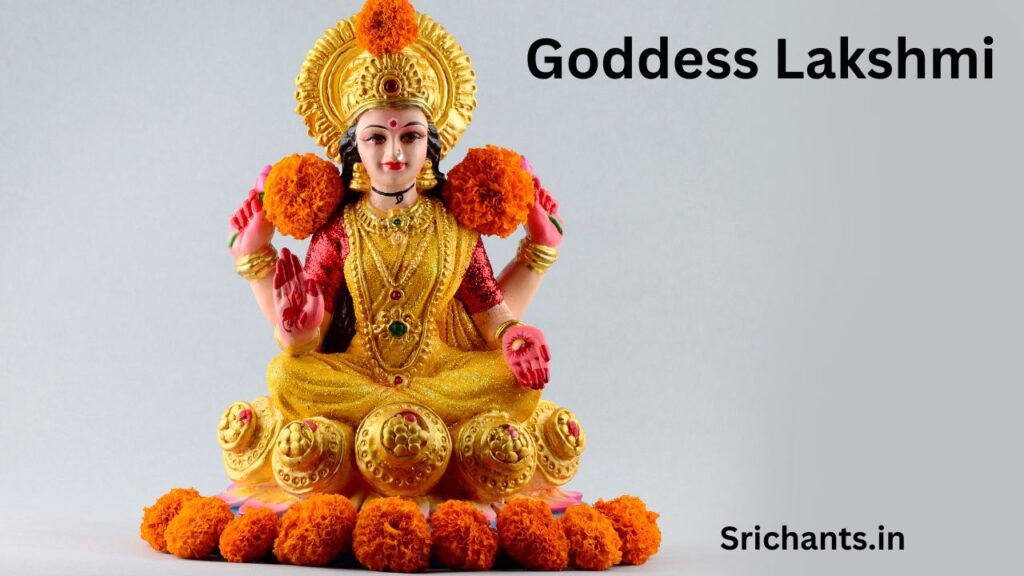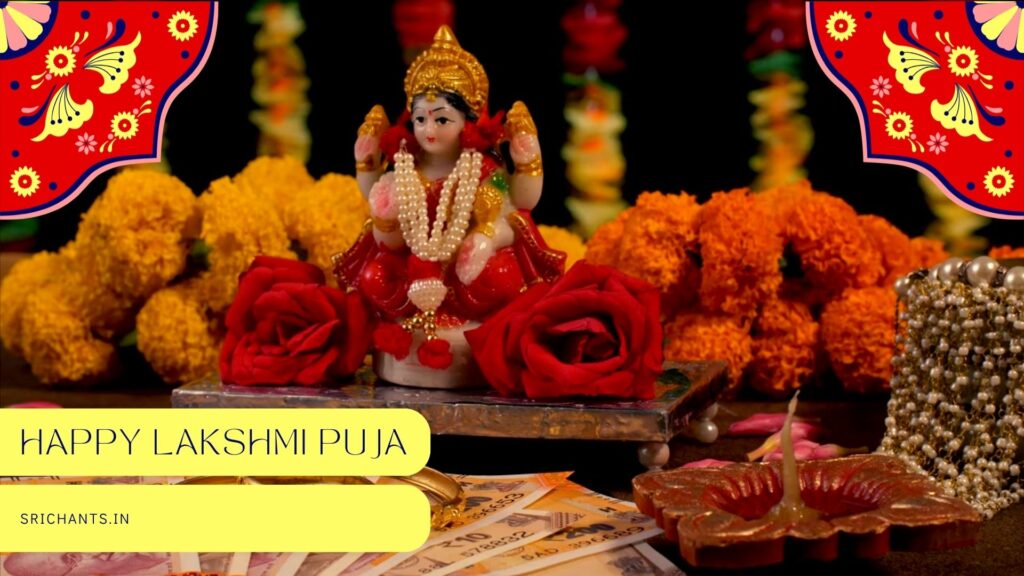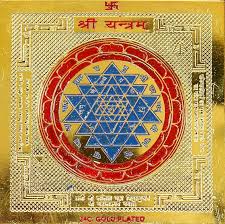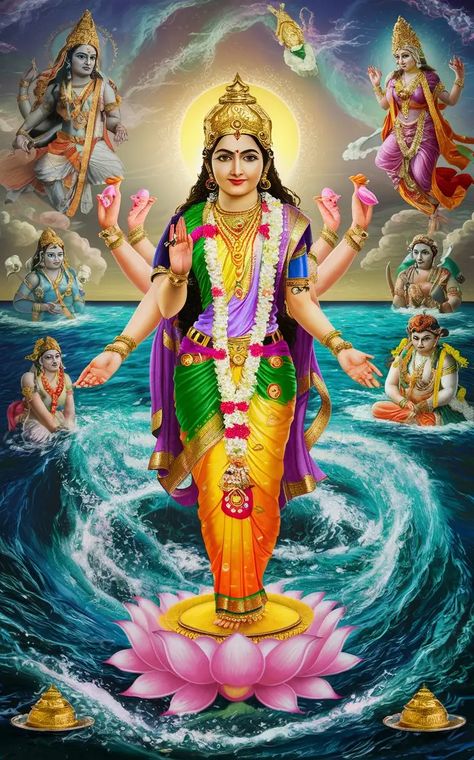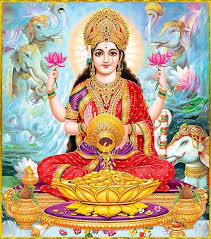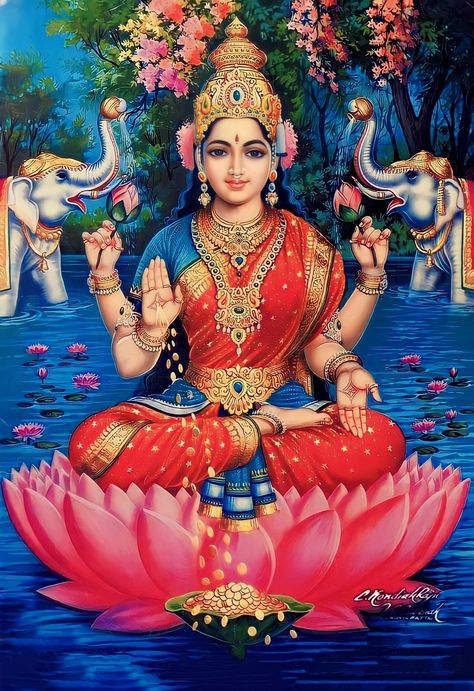Deepavali Lakshmi Pooja : Diwali with Devotion
Introduction
One of the most revered and jubilant celebrations in the Hindu calendar is Diwali, the Festival of Lights. The veneration of Goddess Lakshmi, the divine embodiment of wealth, prosperity, and abundance, is the essence of this lively festival. The preparations for Diwali are imbued with profound spiritual significance as devotees anxiously anticipate her auspicious arrival, becoming a sacred ritual in themselves.
This exhaustive guide will explore the timeless traditions and intricate steps that are associated with honoring Goddess Lakshmi during the Diwali festivities. We will delve into the multifaceted aspects of this celebration and uncover the deeper meanings that lay within, from meticulously cleaning and decorating the home to performing the Lakshmi Puja with utmost reverence.
Cleaning and Decorating the Residence
The initial and most important step in establishing a welcoming and auspicious environment within the home is to welcome Goddess Lakshmi. This procedure commences with a comprehensive cleaning of the entire household, from top to bottom. Lakshmi, the embodiment of purity and prosperity, is reputed to be attracted to environments that are tidy, organized, and devoid of disorder.
Detailed Cleaning
In the days preceding Diwali, families participate in a thorough cleansing ritual referred to as “Diwali Cleaning” or “Diwali Safai.” This entails the meticulous cleaning of every corner and cranny, the dusting and polishing of furniture, and the guarantee that the entire residence is immaculate. Purifying the mind and spirit is symbolized by the act of cleansing the physical space, which prepares the way for the divine bounties of Goddess Lakshmi.
Decorative Accents
The home is adorned with a variety of decorations that create a pleasant and welcoming ambiance after the cleaning is finished. The residence is illuminated by diyas (oil lamps), which emit a gentle, evanescent glow that represents the victory of light over darkness. Lakshmi is invited to grace the space with her presence by the meticulously crafted intricate rangoli designs, which are created using vibrant powders or flowers at the entrances and throughout the home.
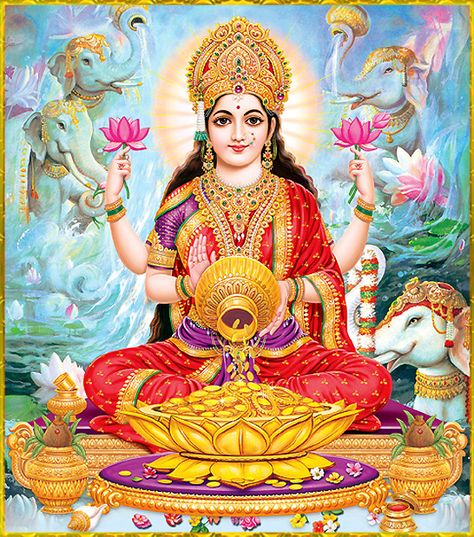
The Lakshmi Puja Ritual: Invoking the Deities
The Lakshmi Puja, a comprehensive ritual that involves the worship of not only Goddess Lakshmi but also other deities associated with the elimination of obstacles, wisdom, and prosperity, is the centerpiece of the Diwali celebrations.
Setting Up the Puja Area
The puja (worship) area is meticulously organized, frequently on a raised platform or in a specially designated location within the residence. A kalash, a metal pot containing water, grains, and other auspicious items, is positioned at the center of a crimson cloth. A sacred space for the ritual is established by the arrangement of the idols of Goddess Lakshmi, Lord Ganesha, and other deities around the kalash.
Devotion to the Deities
The Lakshmi Puja commences with the invocation of Lord Ganesha, the remover of obstacles, to guarantee a successful and seamless celebration. Offerings of flowers, incense, and treats are presented to Lord Ganesha in order to obtain his blessings. The subsequent phase of the ritual centers on Goddess Lakshmi, the primary deity. In order to invoke her divine presence and seek her graces for wealth, prosperity, and abundance, devotees recite mantras, offer prayers, and perform aarti, a ritual that involves waving lighted lamps.
Celebrating Additional Deities
The Lakshmi Puja also entails the worship of other deities, each of whom symbolizes a distinct aspect of life. Goddess Saraswati, the goddess of knowledge and wisdom, and Lord Kubera, the deity of affluence and prosperity, are potential candidates. Devotees strive for a harmonious and balanced existence, in which spiritual and material fulfillment are mutually reinforcing, by paying respect to these deities.
Executing the Lakshmi Puja
The Lakshmi Puja is a meticulously choreographed ritual, with each step possessing profound symbolic significance. We will examine the procedure for conducting this auspicious ceremony in detail.
Preparing the Puja Offerings
With the preparation of the offerings, the puja commences. These may encompass fresh blossoms, incense, diyas, sweets, and other auspicious items. The offerings are meticulously chosen and arranged to demonstrate devotion and gratitude to the deities.

Mantra Recitation and Invocation
The puja commences with the recitation of sacred verses and mantras, which invoke the presence of Goddess Lakshmi and the other deities. The chanting of these mantras is believed to possess profound spiritual power, which contributes to the establishment of a sacred and focused environment for the ritual.
Bathing the Deities
A mixture of water, milk, and other sacred substances, such as panchamrit (a blend of five nectars), is used to delicately bathe the idols of the deities. This ritual represents the deities’ purification and purifying, which prepares them to receive the offerings and blessings of the devotees.
Offering Prayers and Aarti
The deities are then addressed by devotees, who offer their sincere prayers and petitions in order to obtain their graces for prosperity, wisdom, and the removal of impediments. The aarti, a ritual that involves the waving of lighted lamps before the deities, is performed with great reverence, accompanied by the clanging of bells and the chanting of hymns.
Concluding the Puja
The Naivedya, a final act of offering, is permissible for devotees as the Lakshmi Puja approaches its conclusion. This entails the distribution of a plate of specially prepared sweets or other delicacies to the deities, which are subsequently disseminated among the family members as a symbol of the deities’ divine blessings.
Developing Relationships: The Exchange of Sweets and Gifts
The exchange of gifts and delicacies is a critical component of the Diwali tradition, which is a time to fortify familial and social connections.
Transferring and Accepting Gifts
As a symbol of affection, respect, and goodwill, it is customary for family members, friends, and acquaintances to exchange gifts during the Diwali festivities. These presents can encompass a variety of items, including traditional items such as sweets, dry fruits, and clothing, as well as more contemporary options such as electronics, jewelry, or decorative items. The act of gift-giving is perceived as a means of fostering deeper connections within the community and expressing gratitude.
Distributing Sweets and Delights
Diwali is also a time to indulge in a diverse selection of savory and delicious delicacies. These traditional sweets, which are frequently prepared with ingredients such as milk, ghee, and nuts, are shared by families. The distribution of these delectable treats is a representation of the joy of life, generosity, and hospitality.

The Importance of Diyas and Fireworks: Illuminating the Path
The bursting of fireworks and the lighting of diyas (oil lamps) are two of the most iconic and visually spectacular aspects of the Diwali celebrations.
Lighting Diyas
The illumination of diyas is of profound spiritual significance, as it signifies the victory of light over darkness, knowledge over ignorance, and hope over despair. A mesmerizing and auspicious ambiance is established by the adornment of homes, temples, and public spaces with arrays of flickering diyas.
Displays of fireworks
The festival’s spirit is joyfully celebrated through the dazzling display of pyrotechnics during Diwali. Fireworks are believed to ward off negative energies and herald in a new era of positivity and prosperity by emitting thunderous sounds and vibrant colors.
Accepting Renewal and Introspection
Diwali is not merely a commemoration of material prosperity; it is also an opportunity for personal development, introspection, and the rejuvenation of one’s spirit.
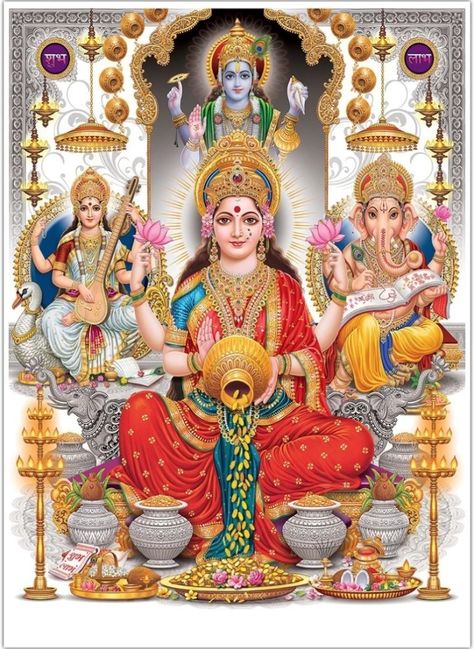
Purification of the Mind and Spirit
A process of inner cleansing is also undertaken by devotees as they prepare their homes for the advent of Goddess Lakshmi. This may entail the release of negative emotions, meditation, and prayer, which facilitates the development of a more optimistic outlook and a fresh start.
Adopting the Spirit of Renewal
The Diwali celebrations are an opportunity to relinquish the past and embrace the potential of a more promising future. Families have the opportunity to align themselves with the energy of renewal and transformation by setting new objectives, making resolutions, and committing to positive changes in their lives.
Honoring Diversity and Inclusivity
Diwali, a global celebration, fosters a sense of unity and inclusivity by transcending religious and cultural boundaries.
Adopting Multiculturalism
Although Diwali is profoundly rooted in Hindu traditions, the festival’s message of light, prosperity, and the triumph of good over evil resonates with individuals from a wide range of backgrounds. Diwali celebrations frequently involve the participation of individuals and communities from diverse faiths and cultures, which serves to fortify the bonds of respect and understanding.
Promoting Interfaith Communication
Diwali offers an opportunity for the exchange of cultural knowledge and meaningful dialogue. People from a variety of backgrounds can develop a greater understanding of the shared values that unite us all and the richness of human diversity by learning about and participating in each other’s festivals and traditions.
Conclusion
The blessings of Goddess Lakshmi, the embodiment of wealth, prosperity, and abundance, are carried by devotees as the Diwali festivities draw to a close. The significance of embracing the light that guides us through life’s journey, nurturing harmony, and honoring the divine feminine is underscored by the rituals, traditions, and celebrations of this vibrant festival.
I hope that the spirit of Diwali inspires you to live a life filled with prosperity, wisdom, and the unwavering conviction that light will always triumph over darkness, whether you are a devoted Hindu or merely someone interested in exploring the richness of this cultural heritage.
#deepavali #diwali #lakshmipooja #diwalipooja #diwalilaxmipooja #puja #celebrate #celebration

